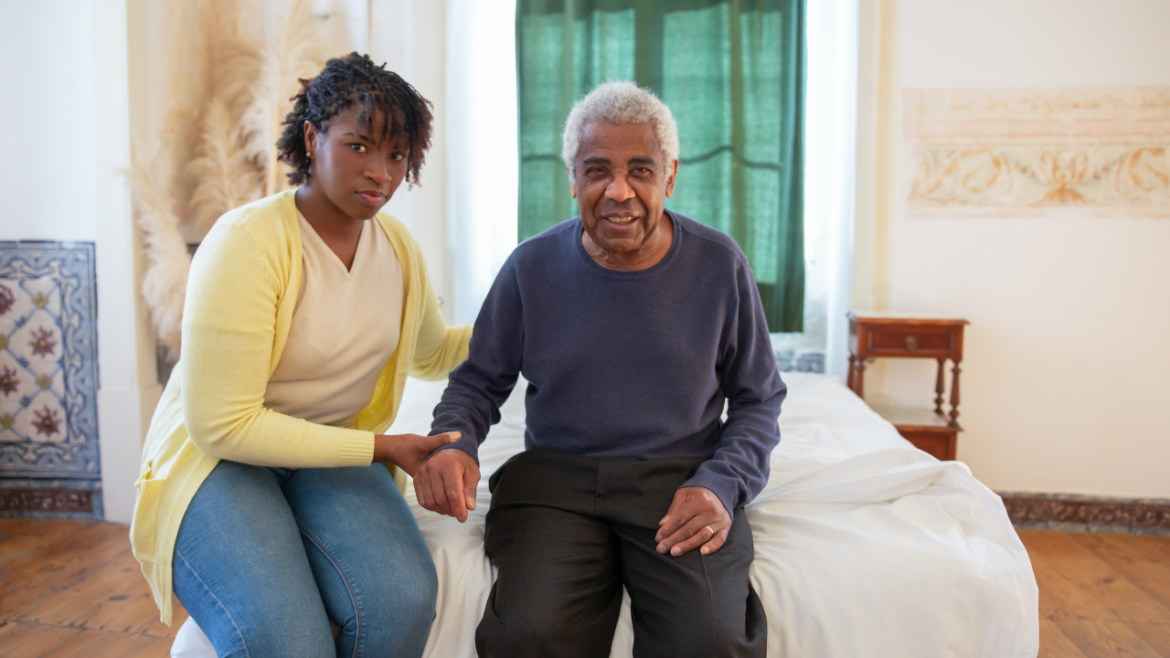Did you know that Leading Edge Senior Care has a Dementia Support Group? We meet monthly in Mesa. For more details <click here>
How To Best Prevent Falls As A Senior
Falls among seniors can lead to severe injuries and a loss of independence. Understanding preventive measures is crucial for maintaining a senior’s safety and well-being.
Understanding the Risks:
- Assess Your Home: Conduct a home safety assessment. Remove clutter, secure rugs, and install handrails.
- Regular Exercise: Engage in exercises that enhance balance and strength, like tai chi and yoga.
- Regular Eye Checkups: Poor vision increases fall risks. Regular eye exams can detect issues early.
- Medication Review: Some medications can cause dizziness. Regularly review prescriptions with a healthcare provider.
- Proper Footwear: Wear supportive, non-slip footwear inside and outside the house.
Enhancing Home Safety:
- Bathroom Modifications: Install grab bars, non-slip mats, and raised toilet seats for bathroom safety.
- Lighting: Adequate lighting prevents missteps. Use nightlights and bright bulbs in hallways and stairs.
- Kitchen Safety: Organize your kitchen for easy access to items. Avoid reaching for high shelves.
- Bedroom Comfort: Arrange furniture to create clear pathways. Install bedside lights for easy visibility at night.
Personal Health and Well-being:
- Regular Health Checkups: Schedule regular checkups to monitor health conditions and address concerns promptly.
- Healthy Diet: Proper nutrition supports bone and muscle health. Include calcium and vitamin D-rich foods in your diet.
- Stay Hydrated: Dehydration can cause dizziness. Ensure you’re drinking enough water throughout the day.
- Adequate Sleep: Quality sleep improves focus and balance. Create a comfortable sleep environment.
Staying Active and Engaged:
- Social Connections: Maintain social ties. Engaging with friends and family reduces feelings of isolation.
- Hobbies and Activities: Pursue hobbies and activities that bring joy. Stay mentally and physically engaged.
- Regular Brain Exercises: Engage in puzzles, reading, or learning new skills to keep your mind sharp.
- Fall Prevention Programs: Consider enrolling in fall prevention programs offered by community centers or healthcare providers.
Emergency Preparedness:
- Emergency Contacts: Keep a list of emergency contacts near the phone or on your mobile device.
- Emergency Kit: Prepare an emergency kit with essentials like medications, water, and important documents.
- Wearable Devices: Consider wearable devices that alert authorities or contacts in case of a fall.
In Conclusion:
Preventing falls is essential for seniors to maintain their independence and quality of life. By taking proactive measures, staying active, and ensuring a safe living environment, seniors can significantly reduce their risk of falls and enjoy a secure and fulfilling lifestyle.

